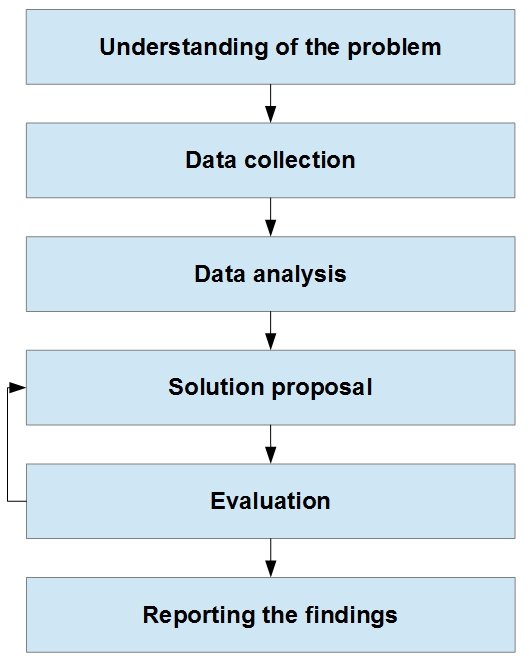A nursing thesis on wound care management offers a unique opportunity to delve into the intricacies of this crucial aspect of patient care. It provides a platform for you to contribute to the body of knowledge, advance evidence-based practices, and ultimately improve patient outcomes. However, the journey of crafting such a thesis can seem daunting.
This comprehensive guide aims to equip you with the knowledge and strategies to successfully navigate this process, ensuring your nursing thesis on wound care management makes a meaningful impact.
Steps for Writing a Nursing Thesis on Wound Care Management
1. Identifying a Compelling Research Question
The foundation of any successful nursing thesis on wound care management lies in a well-defined research question. This question should be specific, relevant, and answerable within the scope of your research. Start by exploring the current literature on wound care management, identifying gaps in knowledge, and considering the clinical challenges you've witnessed firsthand.
Here are some potential avenues for research questions:
- Impact of specific interventions: "Does the application of negative pressure wound therapy (NPWT) significantly reduce healing time for diabetic foot ulcers compared to traditional wound dressings?"
- Exploring patient experiences: "What are the psychosocial factors affecting patient adherence to wound care regimens?"
- Evaluating the effectiveness of educational programs: "Does a patient-centered wound care education program improve self-management skills and reduce hospital readmission rates?"
- Investigating the role of technology: "How does the integration of telemedicine platforms impact the management of chronic wounds in rural communities?"
2. Formulating a Strong Thesis Statement
Once you've identified a research question, crafting a concise and compelling thesis statement is paramount. This statement summarizes your argument and serves as a roadmap for your entire thesis. It should clearly state your position on the topic and be supported by evidence gathered throughout your research.

Here are some tips for formulating a strong thesis statement:
- Be specific: Avoid broad generalizations and focus on a specific aspect of wound care management.
- Take a stance: Clearly express your argument and the direction your research will take.
- Be debatable: Your thesis statement should be a claim that can be supported or refuted through evidence.
3. Conducting a Thorough Literature Review
A comprehensive literature review is the backbone of your nursing thesis on wound care management. It provides you with a deep understanding of existing knowledge, helps identify gaps in research, and provides a framework for your study.
Steps for conducting an effective literature review:
- Define your search terms: Use keywords related to wound care management, your chosen intervention, population, and outcomes.
- Explore reputable databases: Utilize online databases such as PubMed, CINAHL, Nursing Papers and Cochrane Library to access peer-reviewed research articles.
- Critically evaluate sources: Analyze the methodology, results, and conclusions of each study, considering its relevance and limitations.
- Synthesize findings: Organize and summarize the key findings of your literature review, highlighting existing knowledge and identifying gaps in research.
4. Choosing an Appropriate Research Design
The choice of research design is crucial for ensuring your nursing thesis on wound care management is methodologically sound. It determines how you will collect and analyze data to answer your research question.
Common research designs for nursing theses:
- Quantitative research: Focuses on collecting numerical data and analyzing it statistically to identify patterns and relationships.
- Qualitative research: Explores subjective experiences, perceptions, and meanings through interviews, focus groups, or observations.
- Mixed methods research: Combines both quantitative and qualitative approaches to gain a more comprehensive understanding of the topic.
5. Developing a Data Collection Plan
Once you've selected your research design, you need to develop a detailed data collection plan. This plan should outline the methods you will use to gather data, the target population, and the ethical considerations involved.
Essential aspects of a data collection plan:
- Instruments: Choose appropriate instruments for data collection, such as questionnaires, interviews, wound assessments, or physiological measurements.
- Sampling: Determine your target population and the sampling method you will use to select participants.
- Ethical considerations: Ensure your research adheres to ethical principles of informed consent, confidentiality, and privacy.
- Data analysis plan: Outline the statistical or qualitative methods you will use to analyze the collected data.

6. Writing Your Thesis
The writing phase is where you synthesize your research and present your findings in a clear and compelling manner. A well-structured thesis will guide the reader through your argument, supporting your claims with evidence and critically analyzing your results.
Essential components of a nursing thesis on wound care management:
- Introduction: Introduce the topic, state your research question and thesis statement, and provide background information.
- Literature review: Summarize existing knowledge, identify gaps in research, and provide a theoretical framework for your study.
- Methodology: Describe your research design, data collection methods, sample characteristics, and ethical considerations.
- Results: Present your findings in a clear and concise manner, using tables, figures, and descriptive statistics as needed.
- Discussion: Analyze your findings, interpret their significance, and discuss their implications for clinical practice and future research.
- Conclusion: Summarize your main findings, restate your thesis statement, and discuss the limitations and implications of your study.

7. Defending Your Thesis
The final stage of your nursing thesis on wound care management is the defense, where you present your work to a panel of experts and answer their questions. This is an opportunity to showcase your understanding of the topic, the rigor of your research, and your ability to communicate your findings effectively.
Tips for a successful thesis defense:
- Practice your presentation: Rehearse your defense multiple times to ensure a confident and clear delivery.
- Anticipate questions: Consider potential questions from the panel and prepare thorough responses.
- Stay calm and collected: Remember that the panel is there to help you learn and improve your research.
- Address critiques constructively: Acknowledge any weaknesses in your research and express your willingness to learn from feedback.
8. Publishing Your Research
Publishing your nursing thesis on wound care management in a peer-reviewed journal allows you to share your findings with a wider audience and contribute to the advancement of knowledge in the field.
Tips for submitting your thesis for publication:
- Select an appropriate journal: Choose a journal that aligns with the scope and focus of your research.
- Follow submission guidelines: Adhere to the journal's formatting requirements and submission instructions.
- Seek feedback from peers: Obtain feedback from colleagues and mentors before submitting your manuscript.
- Be persistent: It may take several attempts to get your thesis published, so don't give up easily.
Common Pitfalls in Thesis Writing and How to Fix Them
Writing a nursing thesis, especially one focusing on a complex topic like wound care, can be a challenging endeavor. Here are some common pitfalls to avoid:
1. Lack of Clarity and Focus:
- Problem: A poorly defined research question or a broad thesis topic leads to a scattered and unfocused thesis.
- Solution: Clearly define your research question. For example, instead of writing a general thesis on "Wound care management," specify your area of interest, such as "The effectiveness of negative pressure wound therapy in reducing hospital readmission rates for patients with chronic wounds."
2. Inadequate Literature Review:
- Problem: Failing to comprehensively review relevant literature can result in a weak theoretical foundation and inaccurate interpretations.
- Solution: Conduct a thorough literature search using relevant databases and keywords. For example, search for keywords such as "negative pressure wound therapy," "chronic wounds," and "hospital readmission" in the context of a nursing thesis on wound care management.
3. Weak Methodology:
- Problem: An inappropriate or poorly designed methodology can lead to unreliable and invalid research findings.
- Solution: Choose a research design that is appropriate for your research question. If you're writing a nursing thesis on wound care management, consider using a quantitative design for measuring outcomes or a qualitative design to explore patient experiences.

4. Lack of Data Analysis Skills:
- Problem: Inability to correctly analyze and interpret data can lead to misinterpretation and erroneous conclusions.
- Solution: Develop strong data analysis skills. Seek guidance from a mentor or statistician, especially if your nursing thesis on wound care management involves complex statistical analysis.
5. Poor Writing and Editing:
- Problem: A poorly written thesis can detract from the quality of the research.
- Solution: Pay attention to clarity, organization, and grammar. Seek feedback from peers, mentors, and professional editors.
6. Insufficient Time Management:
- Problem: Procrastination can lead to rushed work and a lower-quality thesis.
- Solution: Develop a realistic timeline for completing your nursing thesis on wound care management. Break down the tasks into smaller, manageable steps.
7. Lack of Support and Collaboration:
- Problem: Writing a thesis can be a solitary process.
- Solution: Seek support from mentors, colleagues, and peers. Regularly discuss your progress and challenges.
By avoiding these common pitfalls and focusing on a clear research question, a strong methodology, and effective communication, you can produce a high-quality nursing thesis on wound care management that contributes to the field of nursing.
A Journey of Discovery and Impact
Writing a nursing thesis on wound care management is a challenging but rewarding journey. By approaching this endeavor with meticulous planning, thorough research, and a dedication to excellence, you can produce a thesis that makes a meaningful contribution to the field of nursing and ultimately improves patient care. Remember, your research is a unique opportunity to delve into the complexities of wound care management, address critical gaps in knowledge, and shape the future of patient care.
Key Takeaways
- A nursing thesis on wound care management provides an opportunity for nurses to contribute to the body of knowledge and improve patient outcomes.
- It requires meticulous planning, thorough research, and a commitment to evidence-based practice.
- The process involves identifying a compelling research question, crafting a strong thesis statement, conducting a comprehensive literature review, choosing an appropriate research design, developing a data collection plan, writing the thesis, defending it, and potentially publishing the findings.
- By embracing this journey of discovery and impact, nurses can play a pivotal role in advancing the field of wound care management and improving the lives of patients.
Get Professional Nursing Thesis Writing Help
At Exemplary Dissertations, we offer professional nursing thesis writing help for all academic levels. Our experienced writers can assist through all the stages of thesis writing, with a guarantee of an original and compelling piece. Besides nursing thesis, we can also help you with research papers, case studies, essays and dissertations.